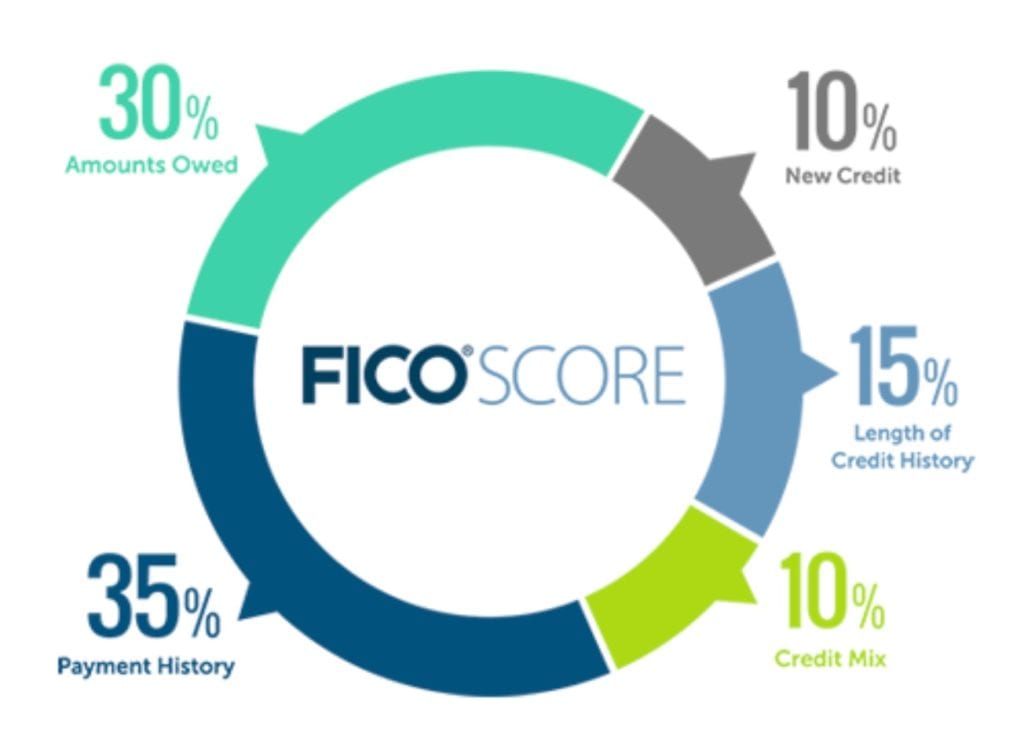Between complex terminology and scoring intricacies, the credit world can feel confusing at times. But knowledge is power, so let’s simplify two important concepts – soft and hard credit inquiries. Understanding these can better equip you to build strong credit and financial health.
In a nutshell, inquiries are when authorized parties access your credit report data. Both hard and soft checks involve a peek at your history.
The difference?
Only hard inquiries affect your score. As we unpack key distinctions, you’ll gain insights to leverage in credit decisions and safeguard your well-being.
By stepping back from jargon, we can have an empowering conversation about safeguarding what matters – your financial goals. Let’s explore soft vs hard inquiries so you can make future credit moves with confidence.
What are Credit Inquiries?

When you apply for a credit card or loan, companies want to check if you’ll likely repay on time. Enter credit inquiries – these allow lenders to access your credit report data from Equifax, TransUnion, or Experian.
Inquiries provide authorized parties a glimpse into your financial past to predict future behavior. Have you managed credit accounts responsibly? Or does your history suggest higher risk? Inquiries help answer that.
While that peek behind the credit curtain can feel uncomfortable, it’s a typical part of seeking new credit. And checks over time showing accountable borrowing actually strengthens your scoring.
What are Hard Credit Inquiries?
If you’ve applied for new credit recently – say, a mortgage, auto loan, or credit card – you may have heard the term “hard inquiry.” But what does that mean?
Hard inquiries, sometimes called “hard pulls,” happen when lenders check your full credit report to make lending decisions after you’ve applied with them. They want to determine if you qualify for more credit or potentially pose a repayment risk.
These checks directly impact your credit score as they imply you seek more borrowed funds. Too many in a short timeframe can prompt scoring models to view you as a riskier borrower.
Impact and Statistics
Now that we know what triggers hard checks, how much do they actually sway your score? The 2023 FICO data shows a single inquiry often leads to a 5-10 point dip, recoverable within 12 months.
The main risk is having too many bunched together.
Why?
This can incorrectly signal desperation or risk to potential lenders. Multiple new loan or credit card applications look problematic through credit scoring lenses.
While an inquiry itself shouldn’t deter necessary borrowing, be aware of key triggers to strategize applications wisely:
- Mortgages, car loans, and personal loans prompt hard checks
- Opening new credit cards is another common trigger
- Even some utilities and landlords may perform reviews
By understanding when you’ll face hard versus soft inquiries, you can time your applications responsibly.
Expert Insights
The good news? With some strategic planning, you can move forward responsibly. Financial experts recommend:
- Spacing Out Applications Over Time: Rather than simultaneously applying for multiple credit cards or loans, sequence your applications every few months.
- Clustering Loan Rate Shopping: When seeking a mortgage or auto loan, compare rates within a 14-45 day period. Credit bureaus then count these as one inquiry rather than dinging your score multiple times.
While occasional hard checks are often unavoidable, following the above minimizes their score impact as you build your financial portfolio.
Let’s recap key points:
- Hard inquiries are required for new credit lines but can temporarily lower your score.
- Applying for mortgages, student loans, and sometimes utilities prompts them.
- Strategically timing applications protect your rating.
- Understand checks that affect you and those that don’t!
What are Soft Credit Inquiries?

Now that we’ve tackled “hard pulls” and their score impact, let’s shine a light on their softer inquiry counterparts to complete the picture. Enter “soft pulls” – the credit checks that don’t ding your rating.
Soft inquiries allow peeks at your financial history too, but crucially never lower your credit score. They usually occur without direct permission – maybe you checked your own report or a card pre-approved you. Either way, rest easy knowing these checks pass quietly without affecting your rating.
It’s a common myth that all inquiries hurt scores. While hard pulls from loan/card applications carry temporary dings, soft checks actually strengthen understanding.
Let’s walk through common triggers so you can recognize inquiries that help versus hurt.
- You Request Your Own Reports: Empower yourself by checking your reports (legally free weekly!) at Equifax, TransUnion, and Experian. These soft inquiries actually benefit you without downsides, helping detect errors and inform wise borrowing choices.
- Card Companies Pre-Approve You: You may occasionally receive pre-qualified credit card or loan offers in the mail. These represent soft checks, too, and estimate your eligibility without stings if you accept or discard them.
- New Jobs Enable Background Reviews: Human resources departments commonly perform soft inquiries before extending job offers to examine the applicant’s financial responsibility.
- Landlords and Utilities Vet Renters and Customers: Much like employers, providers sometimes review reports to assess dependability. Checks confirming on-time payments strengthen your score over time.
The key takeaway?
All those inquiry types simply allow insight into financial patterns without directly changing your rating number. Understanding the differences between soft and hard empowers you to deliberately build and leverage credit!
Strategic Borrowing Tips From the Experts
Financial advisors actually encourage regularly checking your own reports (prompting soft pulls) to catch errors early. Pre-approval offers also strategically inform borrowing potential without hits. Consider both habits for proactive management!
Shedding Light on Common Misconceptions
A common myth is that inquiries universally mean score drops. But now we know soft checks reliably have no impact! Similarly, some assume consumers can’t distinguish pull types. Yet you can quickly identify hard (new account applications) versus soft by recalling check purposes.
Let’s recap the key differences:
- Hard inquiries from loan/card applications temporarily lower scores
- Soft inquiries like self-checks or pre-approvals never impact ratings
- Checking your own reports directly benefits financial literacy!
- Distinguishing between inquiry types empowers deliberate score-building
Here’s to demystifying the credit check confusion! Armed with inquiry insights, you can now confidently strengthen your financial foundation. Onward!
Comparing Hard and Soft Inquiries
Now that we’ve unpacked both hard and soft pulls let’s visually compare key differences and similarities:
Hard Inquiries
- Checks prompted by applications for new credit cards, loans, mortgages
- Can temporarily lower a credit score by 5-10 points if too many bunch together
- Visible to other lenders on your full credit report, affecting approval odds
Soft Inquiries
- Often happen without your direct consent (e.g. self-checks or pre-approvals)
- Never impact scores – reliably harmless for your credit rating
- Only show for your viewing, not visible to outside institutions
Shared Attributes
- Both represent glimpses into your financial management history
- Help inform personal understanding and external lending decisions
- Strategically timing checks keeps hard dings minimal
The takeaway?
While all inquiries involve peeks at your data, only hard pulls affect scoring. Recognizing between the two empowers informed credit and borrowing choices! Understanding nuances protects your financial health.
Actionable Tips to Manage Credit Inquiries

Navigating checks to benefit your score takes proactive borrowing strategies like:
Curb Unnecessary Hard Pull Triggers
Since applications spur hard dings, limit those only to essential big-ticket financing needs. Thoroughly research lenders beforehand and leverage alternatives before initiating hits. Think judiciously before applying.
Routinely Verify Report Accuracy
Vigilantly check your own reports (soft inquiries) to validate hard pulls are authorized applications. Dispute inaccurate checks quickly to mitigate identity theft risks.
Strategically Use Pre-Qualification
Gauge eligibility for cards/loans using pre-qualification. These handy soft checks estimate approval odds sans hard inquiry dings. Use them to guide informed application decisions.
Opt into Credit Monitoring Services
Sign up for monitoring alerts tracking when hard inquiries are recorded by bureaus. This builds ongoing visibility, enabling swift dispute responses to unauthorized checks before lasting damage.
Distinguishing between helpful and harmful inquiries allows for customizing your borrowing strategy. Minimize painful hits while gleaning useful visibility to power informed usage and grow access to credit over time. It’s all about control through education.
Conclusion
We’ve covered a lot of ground demystifying complex credit check landscapes. Let’s recap key lessons to carry forward:
While hard and soft inquiries both offer valuable visibility into money management patterns, only hard pulls from new applications temporarily impact scores. But now, you can strategically limit hits through vigilance of report accuracy, pre-qualification processes, and credit monitoring alerts.
Distinguishing between what helps versus hurts allows customizing borrowing plans to grow access over time, not just reactively protect ratings after the fact. Stay confident – a few unavoidable checks won’t deter your upward credit trajectory!
For personalized support optimizing your credit score and financial health, tools like Cambio leverage AI to create customized debt and credit management solutions convenient for your lifestyle.
Whether you’re trying to remove checks or marks, optimize your score, or correct errors, our AI tools make it super easy.
Check us out here to get started today. Financial freedom is just a click away!



